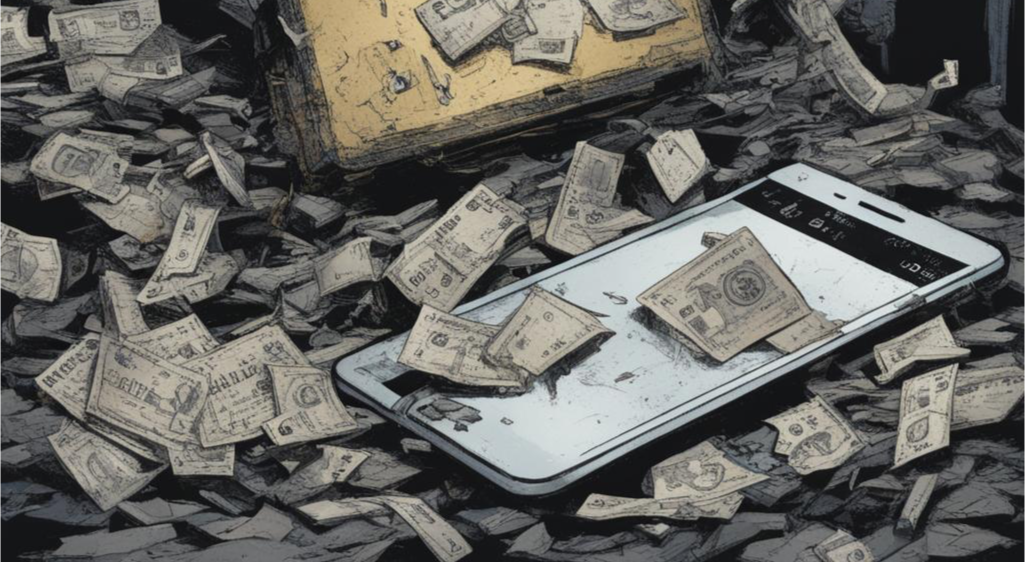How does a bank become an accomplice?

This article partially does not correspond to the topics of the hub, but is based on my personal experience and concerns an important component of information security.
Based on the constant news background about telephone scammers, it would seem that we already know everything about it so as not to fall for it, and in general it is difficult to find a person who has not at least once received a call from the “security service”.
I lived in full confidence that all these stories were not about me, I was a technically literate person. Along the way, he repeatedly warned his already elderly father that no one would ever call him from the bank, ask for any codes, or anything like that.
But nevertheless, all this did not prevent my seventy-year-old father, under pressure from scammers according to the classic scheme “this is from the police, they took a loan on you, you need to apply for a reciprocal loan and close it,” from coming to the VTB branch on March 13, 2024.
Where he took out a loan for 800 thousand, and then transferred the entire amount through an Alpha ATM to the shopping center in 2 parts according to account numbers, then realized that he had been deceived.
I accept that much of this is my father's fault and I have to pay for it. But the following questions also arose for the bank, which do not deny either the negligence of employees or the assistance of fraudsters:
My father has no savings, and no property, the apartment in which he lives is owned by me, the loan was issued on the basis of “car repairs” secured by this very car, which, attention, does not exist! Plus, based on the amount, Bentley apparently needs to be repaired.
The loan was issued in cash within 10 minutes, without proof of income, to a pensioner with a monthly payment of 90% of his pension, no other sources of income. For example, when I took out a loan from Alfa, being their premium client, the bank carried out an inspection within several days.
The employees did not warn that the borrower could be a participant in the scam; most likely, this is, of course, not in the employee rules, but given that such cases occur in dozens per day, why not think about it?
Some details:
From the police:
Of course, the first thing that was done was to write a statement to the police. The investigator said that this is 99% without options, at most they will tie up some kind of drop on whom they will hang all this. He will owe the rest of his life, but he will not pay anyone, because he does not have money and never will.
From lawyers:
The algorithm for solving the problem boils down to bankruptcy. The price of the issue, with all overhead costs, is 250-450 thousand, after which the lender will be obliged to write off the borrower’s debt. Here again, there is a stone in VTB’s risk management, so is it normal that you give a person a loan in 10 minutes, after which he simply throws it at you, declaring bankruptcy?
About the situation in general:
If you want, there are public pages on the Internet that don’t even really hide themselves, where you can absolutely safely buy SIM cards, personal data with full name, phone numbers, account balances (they are probably sold by bank employees themselves), photographs of documents in any form, find ricers, droppers and cashers; there are even people willing to talk about the vulnerability of banks’ antifraud for a fee. Here is a question for all market participants: is this ok?
About the bank:
The department said it was his own fault. They refused to accept the statement about informing that the borrower had taken funds under pressure. I wrote a complaint to the Central Bank with a request to carry out an inspection of the branch.
Why am I writing this
I would like someone else to draw a conclusion from this other than me. Remember that if you are not a victim of a scam, your closest relative may become one, and unfortunately, conversations alone are not enough to protect against this.
How can you protect yourself?
First of all, the problem is complex; until then, gray schemes bring money, black call centers continue to work. Even if your loved ones do not have large savings, this does not mean at all that they have nothing to lose:
Buy your relatives 2 phones, one push-button for SMS, the other for calls.
Set up Whitelist for calls
If you have relatives, prohibit the installation of applications on your smartphone
Convince you not to use WhatsApp, there are many types of fraud that can be done through it.
Erase all details from the cards, they are not needed to pay and withdraw money
Don’t be too lazy to go to all the service offices of top banks, where you can write a ban on loans to an elderly relative; unfortunately, this cannot be done centrally until March 1, 2025
Check your BKI statements annually




